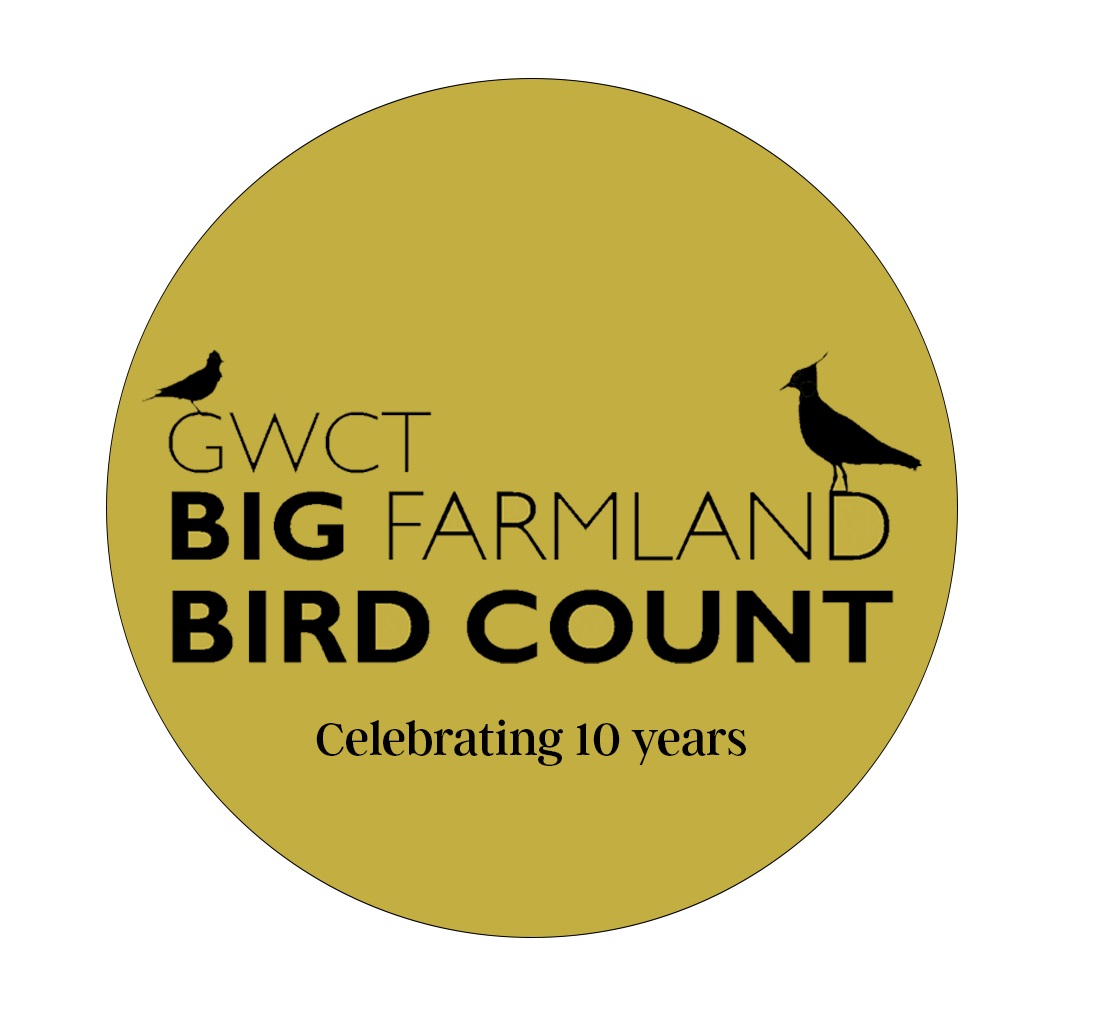February 3-19, 2023 bfbc.org.uk. Follow us on Twitter #bfbc
Sponsored by the NFU.
2023 is the tenth anniversary of the GWCT Big Farmland Bird Count. Ahead of this year’s census, its founder, Jim Egan, is encouraging land managers to participate. He said:
“Understand that what you do makes a difference and gives the Game & Wildlife Conservation Trust (GWCT) an excellent opportunity to speak out about all the good work that is being done on farms.”
dr Roger Draycott of the GWCT, who is now leading the census, agreed:
“In the decade since the GWCT Big Farmland Bird Count began, the commitment of an ever-growing number of farmers and land managers to supporting and monitoring birds and other wildlife is inspiring and should be celebrated.”
The tenth GWCT Big Farmland Bird Count will be held February 3-19. People are asked to take just 30 minutes to count the birds they see on their land and then submit their results to the GWCT. Counting allows land managers to measure the impact of the conservation work that so many of them are doing. And the nationwide voluntary effort allows the GWCT to get a picture of the status of Britain’s farmland bird species.
According to Roger, the GWCT Big Farmland Bird Count is an opportunity “to show our appreciation for all those farmers, game rangers and other land managers who work so hard to support our wildlife, which is mostly unrecognized by the general public.”
Celebrating the good many farmers are doing is something the National Farmers Union fully supports, having sponsored the census for the past five years. NFU President Minette Batters said:
“Farmers across the country not only produce sustainable, climate-friendly food, they also maintain and protect the great British countryside, create habitats for biodiversity and provide additional food for farmland birds.
“I encourage all farmers to participate in the 2023 GWCT Big Farmland Bird Count.”
Why should land managers get involved?
More than one in four bird species in the UK is in serious difficulty, according to the most recent assessment of the status of birds in the UK, the Birds of Conservation Concern (BoCC) list (2021).
“We will not halt the alarming declines in species such as curlew and skylark if we leave it to conservation areas and national parks alone,” commented Roger. “72% of the UK countryside is managed by farmers, gamekeepers and land managers, so it is vital that we all work to reverse biodiversity loss.”
“Small changes can make a big difference” said GWCT Wildlife Advisor Amber Lole.
With responsibility for such a large chunk of the UK’s land area, private land managers can make an enormous difference to the future of our wild birds.
“Modern farming practices mean that in late winter and early spring there is often insufficient natural food for wildlife on land, leading to what is known as the ‘hunger gap,'” Amber continued. “One of the best things you can do to support farmland birds is provide extra seed for the winter. Complementary feeding is particularly beneficial for protected birds such as partridges, yellowhammers and corn buntings.”
The use of ‘conservation spits’ – wide field margins where little or no pesticide use is used – is also very good for farmland birds. The thriving of broadleaf weeds supports insect populations, which are an important food source for birds. Planting and tending hedges also provide important food, as well as nesting habitats and a safe haven from predators.
GWCT advisors encourage land managers to maintain small wetlands around the farm to attract wading birds. Leaving an uncultivated area of cultivation can also provide suitable nesting and feeding grounds for birds that prefer open ground feeding such as B. lapwing, skylark, curlew and turtledove.
For more advice on supporting wild birds and participating in the GWCT Big Farmland Bird Count, visit bfbc.org.uk
ends
Note to the editor:
Check out ours Online start at 10 a.m. on February 3rdplus videos and updates, on Twitter below @gameandwildlife #bfbc, Facebook: gamewildlifeconservationtrust and Instagram gamewildlifeconservationtrust
Sponsors & Supporters
The GWCT Big Farmland Bird Count is sponsored by the National Farmers’ Union (NFU) and supported by:
|
FUW (Farmers Union of Wales) NFU Cymru |
Ulster Farmers Union (UFU) NFU Scotland |
|
kings |
CFE: Commit to the managed environment |
|
FWAG: Advisory Group on Agriculture and Wildlife |
NSA: National Sheep Association |
|
Camgrain |
LEAF: linking environment and agriculture |
|
CLA |
Perdix |
Jim Egan founded the GWCT Big Farmland Bird Count while working for the GWCT’s demonstration farm, the Allerton Project. Jim now works as a technical consultant for Kings Crops.
The Game & Wildlife Conservation Trust – Providing research-led conservation for a thriving landscape. The GWCT is an independent wildlife conservation charity that has been conducting scientific research into game and game in Britain since the 1930s. We advise farmers and landowners on how to improve wildlife habitats. We employ 22 PhD scientists and 50 other research staff with expertise in areas such as birds, insects, mammals, agriculture, fish and statistics. We conduct our own research as well as projects funded by contracts and grants from government and private entities.





